The winter months can be brutal on our native wild birds, with temperatures plummeting, adverse weather conditions, and a scarcity of natural food sources. That's why it's more important than ever that we provide our garden birds with energy-rich foods to keep them going until the warmer spring months roll around.
A simple bird feeder filled with suet, or a bird table regularly topped up with mealworms can make all the difference to our favourite garden birds - and provide us with a source of entertainment as we enjoy watching the creatures tuck into their treats.
Best bird food for winter at a glance:
While a good supply of bird seed is a benevolent gesture all year round, in the winter months, there are higher-energy foods that we recommend to keep your garden birds healthy and happy through the harshest season. Here is our selection of the tastiest and most nutritious types of bird food that will keep your feathered friends well-fed throughout winter.
Best bird food for winter
Best fat ball bird food for winter
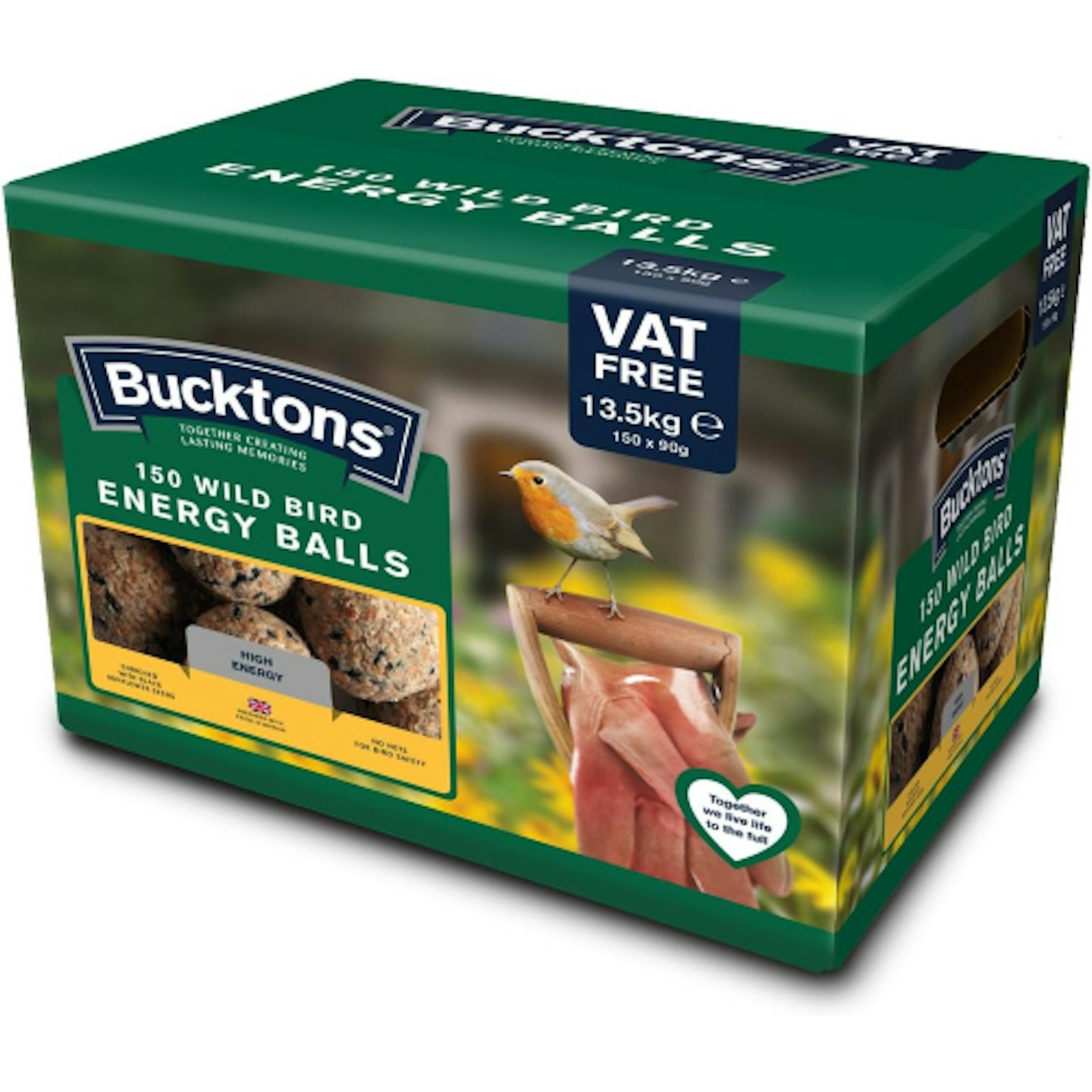 Bucktons
Bucktons If you want to bring all the birds to your yard, fat balls are the way to go. These Bucktons balls are packed full of high-energy ingredients, including beef tallow and the bonus addition of black sunflower seeds.
These balls are ideal to be placed in wire-framed bird feeders, and this box of 150 balls should last you for a good few weeks of winter weather. These balls are supplied un-netted, so will be suitable for birds of all sizes.
Pros
- The balls contain black sunflower seeds
- Made with 100% beef tallow
Cons
- Some reviewers suggest the balls crumble if not handled well in transit
Best suet block bird food for winter
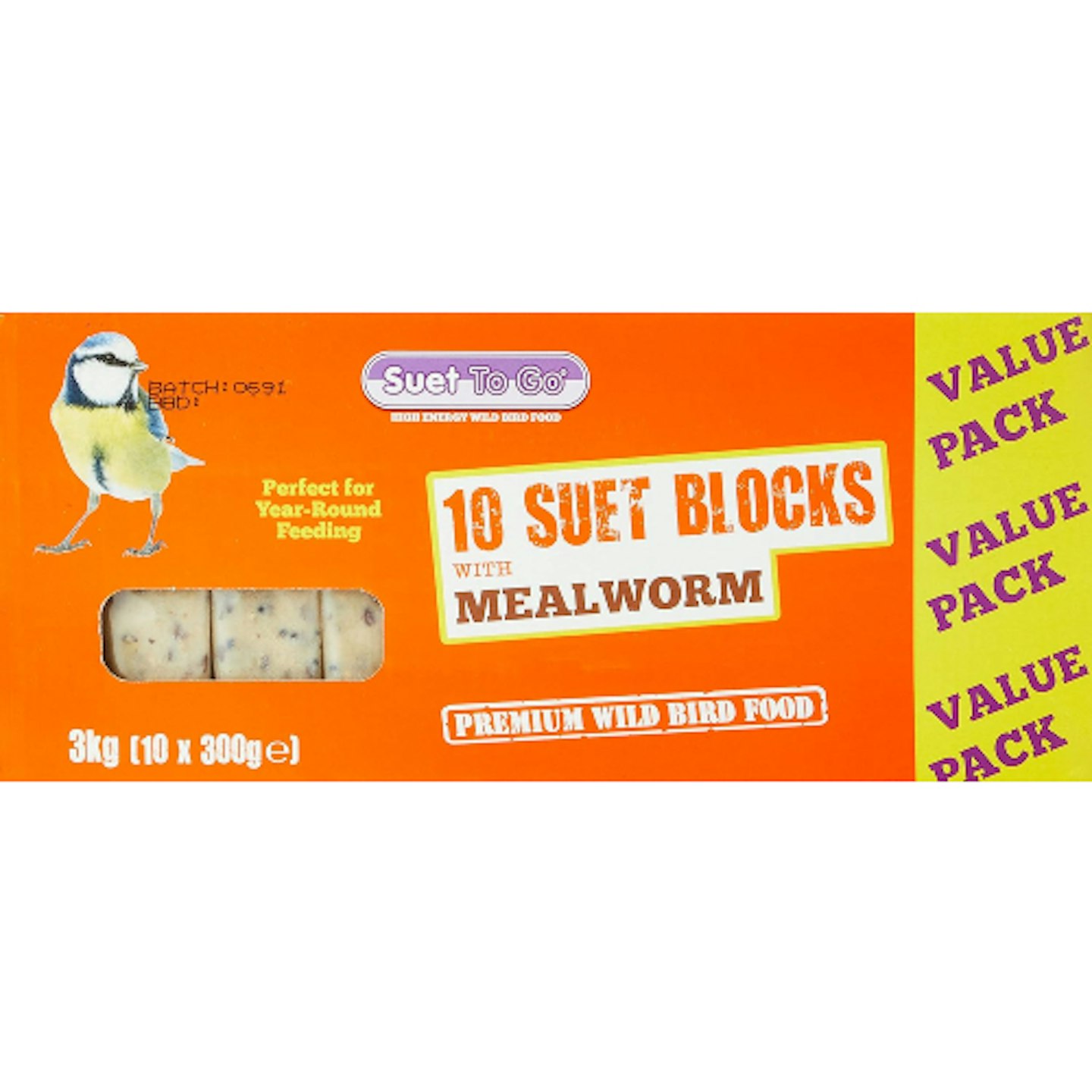 Suet to Go
Suet to Go Reviewers warn these suet blocks are so delicious that their garden birds can easily go through one a day. This pack provides you with 10 blocks made from an enhanced formula of premium-grade, high-energy suet packed with protein-rich dried insects.
The seed content is attractive to most garden birds - millet, linseed, and rapeseed are mixed with beef fat and peanut flour to create a tasty meal for anything from sparrows to starlings.
Pros
- Contains millet seed, linseed, and rapeseed
- Packed with protein-rich dried insects
Cons
- Ideally needs to be placed in a suet block feeder
Best peanut bird food for winter
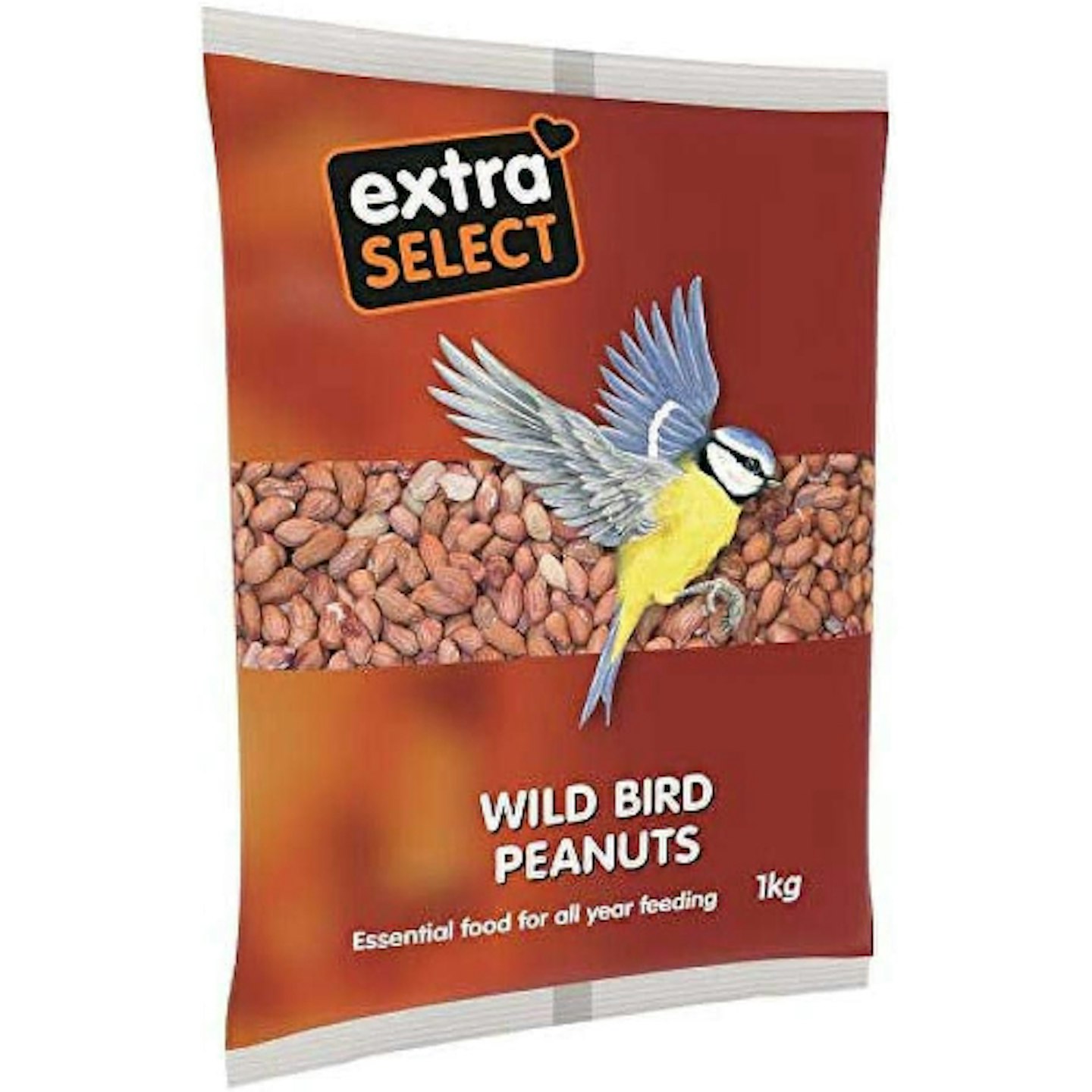 Extra Select
Extra SelectYou might be wary of feeding your garden birds peanuts, but these Extra Select nuts have been thoroughly aflatoxin-tested, meaning you can rest easy while offering up a protein and fat-rich treat to your neighbourhood flock.
Many reviewers like to put these nuts in a separate wire-framed feeder, while others mix them in with standard bird seed to give hungry birds an energy boost.
Pros
- These nuts have been aflatoxin tested for safety
- Attractive to siskins, finches, and all kinds of tits
Cons
- Some reviewers say these nuts attract squirrels
Best sunflower bird food for winter
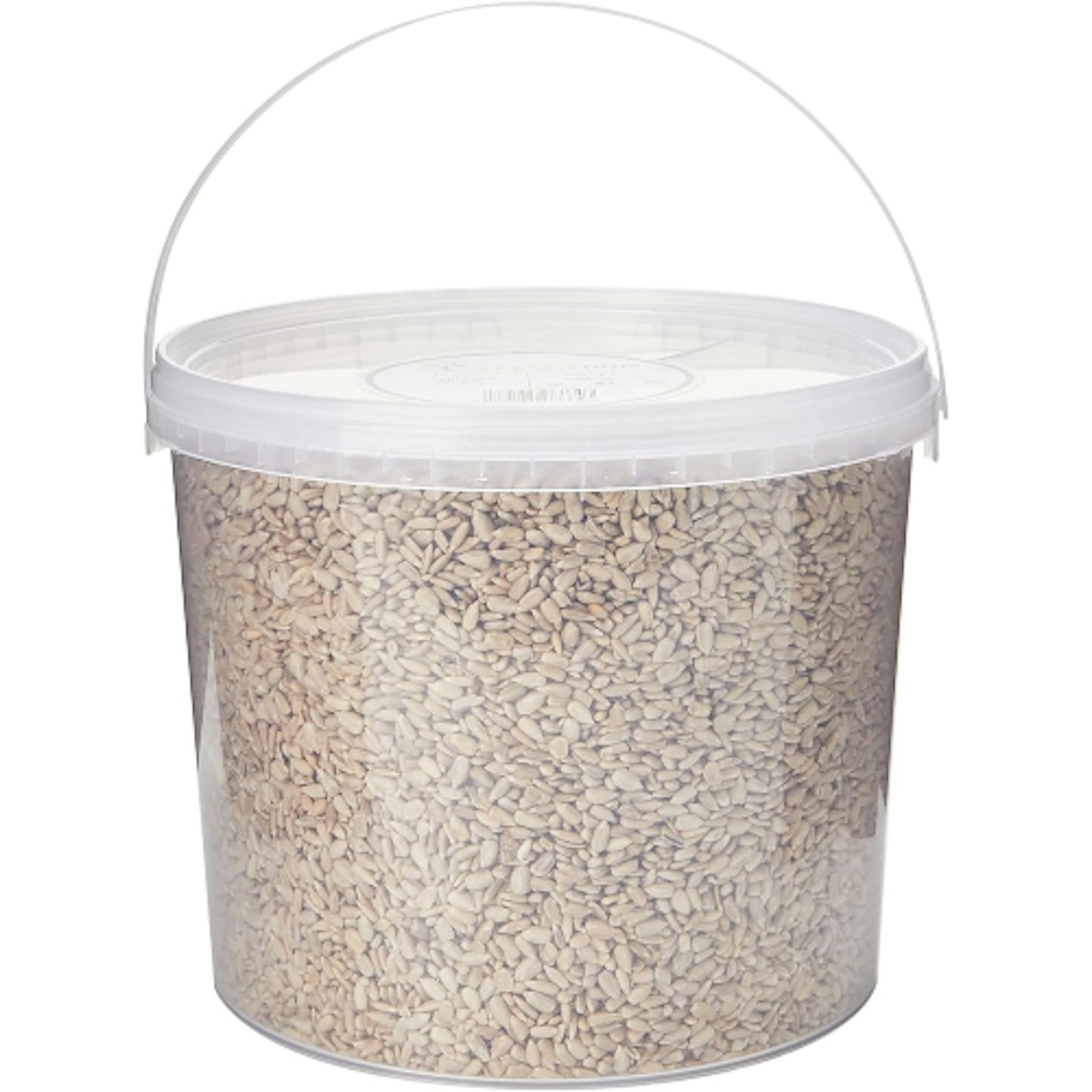 Garden Ting
Garden Ting Sunflower hearts are packed full of nutrients, energy, essential oils, and protein. This five-litre tub is an affordable option to provide a winter food source for finches, robins, tits, sparrows and blackbirds.
These sunflower hearts can supplement your regular bird seed food or be dished out on bird food tables as an occasional treat.
Pros
- A five-litre supply that comes in a reusable tub
- Suitable for a wide range of garden birds
Cons
- Some reviewers say the tub's lid can easily break
Best niger seed bird food for winter
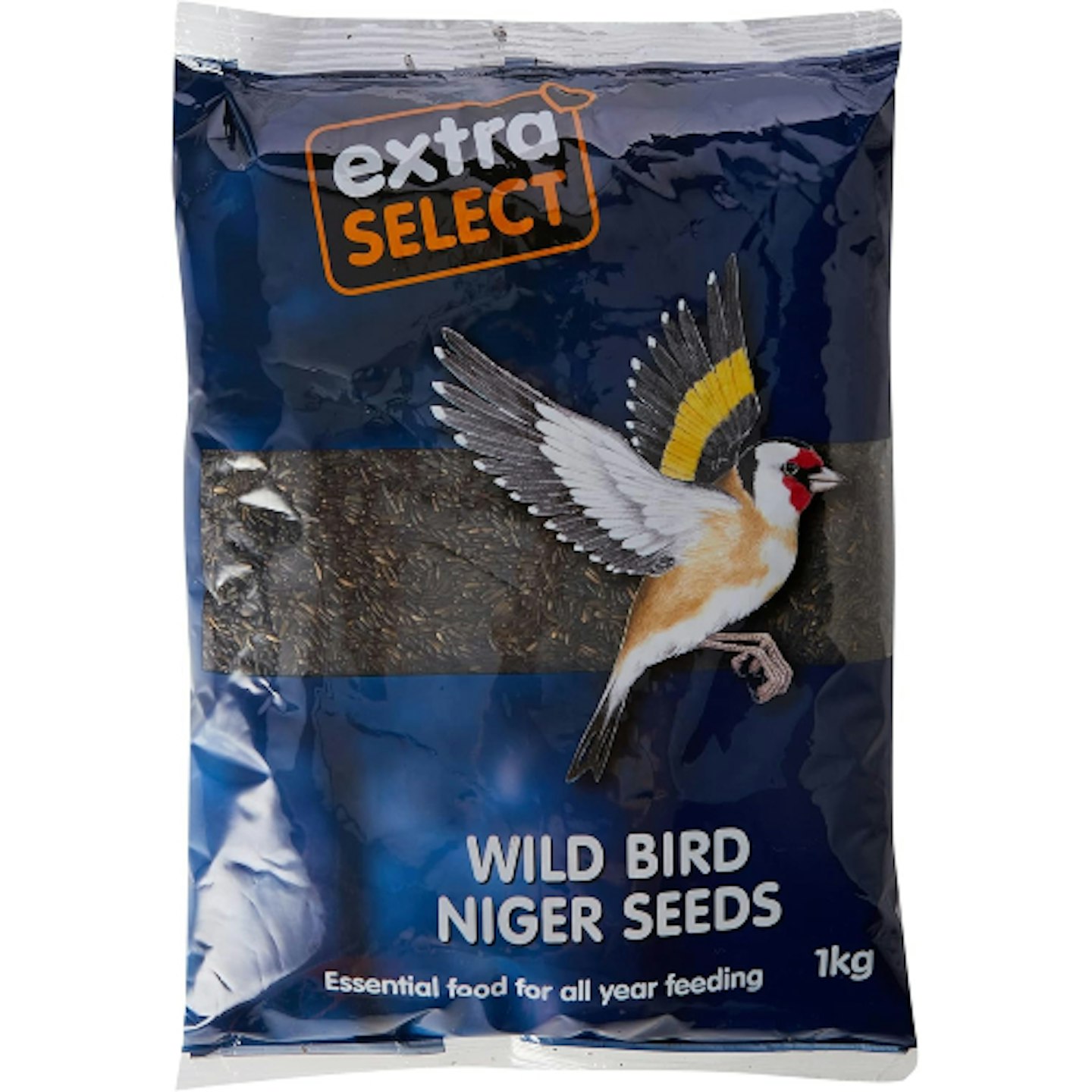 Extra Select
Extra SelectNiger, or Nyger seeds, won't appeal to every bird in your garden, but smaller wild birds, like goldfinches, greenfinches, and siskins, will appreciate you adding them to your bird-feeding repertoire.
These tiny seeds are rich in natural oils and will provide an energy boost to your smaller feathered friends. While we recommend these seeds for winter feeding, they can also be beneficial during breeding times and as a food source for spring fledglings.
Pros
- These seeds are chock-full of beneficial oils
- A great option to attract smaller bird breeds
Cons
- These will ideally need a niger seed-specific feeder
Best fruity bird food for winter
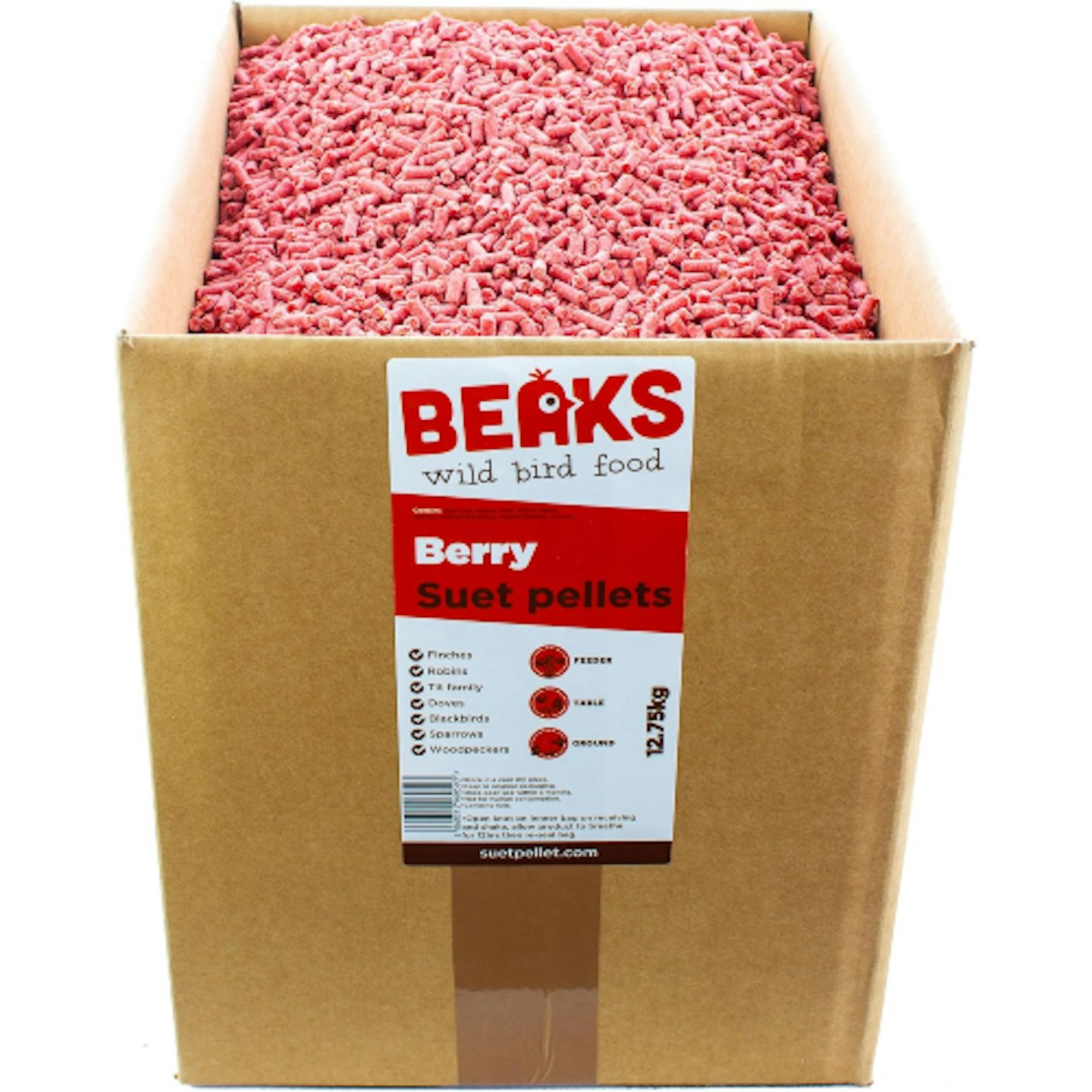 Beaks
BeaksYou can give your garden birds their fat balls and nuts, but have you thought about helping them get their five-a-day? Wild birds will graze on berries and soft fruit in the seasonal months, but there's not a lot of choice for them during winter.
These wild berry pellets can offer that fruit infusion, offering a source of nutrition when there is no offer fruit to be found. Reviewers suggest birds are attracted to this food due to its vibrant colour, something to consider if you're struggling to get birds to feed in your garden.
Pros
- Pink in colour, which is said to attract birds
- Pellet-shape food makes it suitable for all species
Cons
- Supplied in non-resealable packaging
How we chose the best bird food for winter
All of these bird foods have been hand-selected by our team of Modern Gardens shopping experts. We carefully considered the nutritional value, energy-giving properties, and protein levels in our selection of the best. Our team has spent hours investigating and researching all types of wild bird food to make it easier for you to find the very best, and we'd never recommend a product we don't believe in.
Where possible, we also test and share the latest and best products you should know about. And with help from Modern Gardens Magazine, Garden News, and Garden Answers, we share expert gardening knowledge to help you get the most from your product.
FAQs
How else can I help wild birds through the winter?
In addition to offering wild birds food, it's important to provide a clean water source, ideally close to where you're feeding them. A garden bird bath is the most obvious solution, but a simple bowl, regularly refreshed, will suffice.
Setting up a bird nest box is another way to help your neighbourhood birds. It's more likely that the box will be inhabited in the spring breeding season, but some birds, like sparrows, tits, and nuthatches, may consider your offer of free accommodation during the colder months.
Where should I place a bird feeder?
Your bird feeder, whether that's a dedicated plastic or metal-framed option, or a full-size bird table, should be placed in a relatively secluded spot that offers a quiet area for birds to graze. If you have cats or cats as neighbours, it's best to place any feeder out of leaping distance of walls, fences, or garden furniture.
What to read next:
Give your garden wildlife a cosy home with the best bug hotels
Subscribe to Modern Gardens magazine and get the most out of your outdoor space. Discover everything you need to know to make your outside space look fantastic, quickly and easily, with hundreds of simple ideas, designer tricks, affordable products and expert advice in every issue of Modern Gardens. View our latest subscription offers to save on shop prices.
Amy-Mae Turner is a Commerce Content Writer for Modern Gardens, Yours, Take A Break Pets, and A Modern Kitchen. When she's not pottering in the garden or mucking around in the kitchen, she can be found having doggy cuddles with her two beloved cockapoochis.

